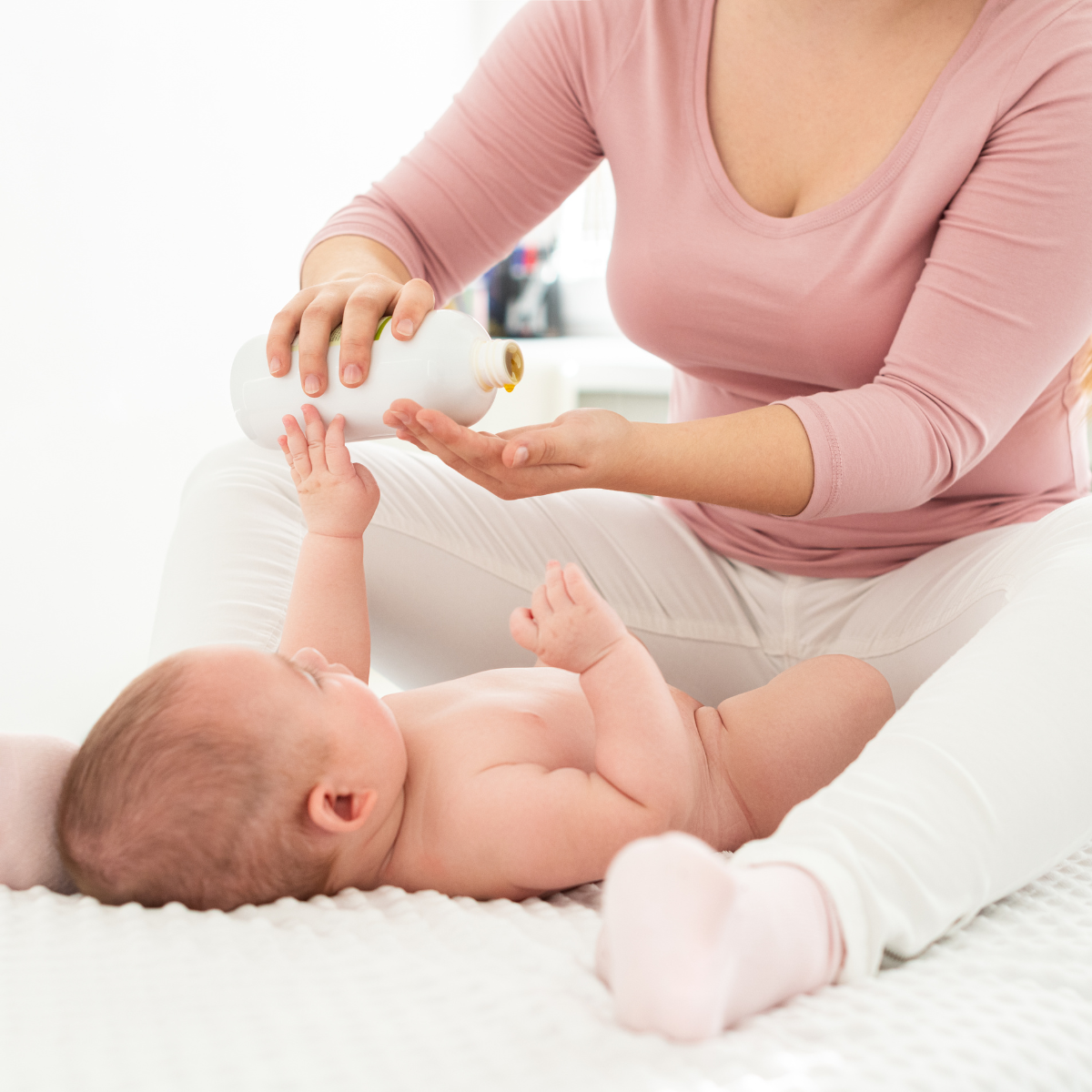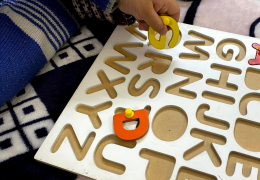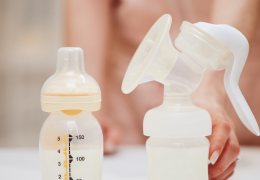As the seasons change, so do the types of illnesses that affect our little ones. Babies, with their developing immune systems, are particularly vulnerable to seasonal illnesses such as colds, flu, and respiratory infections. Protecting your baby from seasonal illnesses is essential for their well-being. While it’s impossible to fully prevent exposure to illness, there are several steps you can take to protect your baby from these seasonal infections. In this article, we’ll explore the most effective methods to safeguard your baby, from strengthening their immune system to making your home a healthier environment during colder months.
Understanding Seasonal Illnesses in Babies
Seasonal illnesses are more common during colder months when viruses such as the flu and RSV (respiratory syncytial virus) are more prevalent. Protecting your baby from seasonal illnesses during these periods requires a combination of good hygiene, boosting their immune system, and taking precautions during high-risk times. Babies, especially those under the age of one, are more susceptible to these infections because their immune systems are still developing.

Breastfeeding is one of the best ways to protect your baby from seasonal infections
Common seasonal illnesses include:
- Common Cold: Caused by various viruses, this is one of the most common infections babies can catch during colder months.
- Flu: Influenza viruses can cause more severe symptoms, including fever, body aches, and respiratory issues.
- RSV (Respiratory Syncytial Virus): This virus can lead to serious respiratory issues, including bronchiolitis and pneumonia.
- Ear Infections: Seasonal changes can also lead to an increase in ear infections, which are common among infants and toddlers.
Strengthening Your Baby’s Immune System
A strong immune system is your baby’s best defense against seasonal illnesses. While babies are born with some immunity passed down from their mothers, their immune systems continue to develop over the first few months of life. Here are some ways to support and strengthen your baby’s immune system, helping in protecting your baby from seasonal illnesses:
- Breastfeeding
Breastfeeding is one of the best ways to boost your baby’s immunity. Mother’s milk contains antibodies that help protect your baby from infections, especially during the early months of life. Breastfeeding provides essential nutrients and boosts immune function by delivering these protective antibodies directly into your baby’s system. If breastfeeding isn’t possible, consider consulting with a pediatrician to explore formula options that support immune health. - Proper Nutrition
As your baby begins eating solid foods, ensure they receive a variety of nutrient-rich foods that support immune health. Foods rich in vitamins, especially Vitamin C and D, are vital for strengthening the immune system. For babies older than six months, consider offering fruits, vegetables, and whole grains. Foods like oranges, spinach, and sweet potatoes are rich in immune-boosting vitamins. You can find more about the nutritional needs of babies in articles like this one on baby nutrition. - Vaccinations
Vaccinations are essential in protecting your baby from seasonal illnesses. The flu vaccine, recommended for babies aged six months and older, can help reduce the severity of the illness or prevent it altogether. Be sure to stay up-to-date on all recommended vaccinations and discuss any concerns with your pediatrician. For more information, you can visit the CDC’s vaccination page.
Creating a Healthy Environment
In addition to strengthening your baby’s immune system, creating a healthy living environment is crucial to reducing exposure to seasonal illnesses. The right environment can help prevent the spread of germs and reduce the likelihood of your baby catching an infection.
- Keep Your Baby’s Environment Clean
Regularly clean and disinfect surfaces that your baby comes into contact with, such as toys, high chairs, and crib rails. Germs can live on surfaces for hours, so keeping your baby’s environment sanitized is key to reducing the spread of illness. You can use cleaning products like disinfectants approved by the EPA for best results. - Wash Your Hands Frequently
Washing your hands frequently is one of the most effective ways to prevent the spread of germs. As a parent, be sure to wash your hands before feeding, changing, or comforting your baby. It’s also essential to encourage visitors to wash their hands before interacting with your baby. Learn more about hand hygiene from WHO’s handwashing guide. - Limit Exposure to Sick Individuals
Try to limit your baby’s exposure to individuals who are sick, especially during peak flu and cold seasons. If someone in the household is unwell, ensure that they practice good hygiene, such as wearing a mask and washing their hands frequently, to minimize the risk of spreading illness. For more on managing cold and flu season, check out the CDC’s tips for preventing flu.
Dressing Your Baby Appropriately for the Weather
During colder months, it’s essential to dress your baby appropriately to protect them from temperature extremes. Babies are more sensitive to cold weather, which can increase their risk of catching illnesses. Here are some tips for protecting your baby from seasonal illnesses by dressing them warmly:
- Layering Clothing
Layering your baby’s clothing allows you to adjust their warmth as needed. Start with a soft, moisture-wicking base layer to keep them dry and comfortable. Follow up with an insulating layer like a sweater or fleece, and top it off with a windproof, waterproof outer layer to protect them from the elements. Learn more about baby clothing guidelines for different weather conditions. - Keep Your Baby Warm and Dry
Avoid exposing your baby to cold drafts and ensure they stay dry, especially when going outdoors. Wet clothing can lead to chilling and increase the risk of illness. Always carry a blanket or extra layer in case your baby gets cold or wet during outdoor activities. - Use a Humidifier
During the winter months, the air can become very dry, which can irritate your baby’s respiratory system and make them more vulnerable to illness. Using a humidifier in your baby’s room helps maintain moisture in the air, reducing the likelihood of dry skin, congestion, and irritation in the nose and throat. The American Academy of Pediatrics offers more tips on creating a healthy home environment.
Encourage Good Hygiene Habits
Teaching your baby good hygiene habits, even at a young age, is crucial for preventing seasonal illnesses. While your baby may not yet be able to wash their hands independently, there are things you can do to promote hygiene.
- Wipe Your Baby’s Hands
For babies who can’t wash their hands, carry sanitizing wipes or hand gel that is safe for infants to clean their hands after touching surfaces or toys. Wipe down your baby’s hands after every meal and before they put their hands in their mouth. - Teach Toddlers to Cover Coughs and Sneezes
Once your baby reaches toddlerhood, start teaching them to cover their mouth and nose with their elbow or a tissue when they cough or sneeze. This simple habit can help prevent the spread of germs. - Avoid Touching Face
Try to keep your baby from touching their face as much as possible. Babies are often curious and may touch surfaces with germs, then touch their face, leading to illness. Gently guide your baby’s hands away from their eyes, nose, and mouth to help reduce the risk.
When to Seek Medical Advice
While it’s important to protect your baby from seasonal illnesses, there may still be instances when your baby falls ill. Recognizing the signs of illness and seeking prompt medical care is essential for their health and comfort.

Maintaining a clean home environment is crucial in reducing exposure to seasonal illnesses
- Signs of Respiratory Illness
If your baby develops symptoms such as a persistent cough, rapid breathing, or difficulty breathing, seek medical attention immediately. Respiratory infections like RSV can progress quickly and may require professional care. - Fever and Lethargy
If your baby has a fever that lasts more than 24 hours or appears unusually lethargic, consult your pediatrician. Fever is often a sign of infection, and prolonged fever in babies should not be ignored. - Ear Infections
If your baby is tugging at their ears or appears to be in pain, it could be a sign of an ear infection. Ear infections are common during seasonal changes, and prompt treatment can help alleviate pain and prevent complications.
Conclusion
Protecting your baby from seasonal illnesses requires a combination of proactive measures. From supporting their immune system through breastfeeding and proper nutrition to creating a clean environment and ensuring they are dressed warmly, each step plays a crucial role in safeguarding your baby’s health. By staying informed and taking the necessary precautions, you can help minimize the risk of your baby contracting seasonal illnesses and ensure they stay happy and healthy during the colder months. Always consult with your pediatrician for any concerns and stay up-to-date with recommended vaccinations to give your baby the best defense against seasonal illnesses.
You can read: The Ultimate Guide to Choosing the Best Baby Formula: Everything You Need to Know






